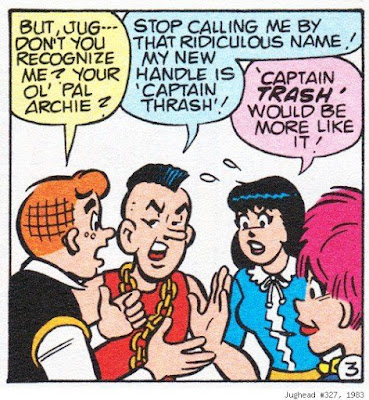HOW DID I GET HERE, OR "REMAIN IN LOVE: TALKING HEADS, TOM TOM CLUB AND TINA" BY CHRIS FRANTZ
I like a good rhythm section. I also like the idea of the rhythm section - you're back there providing the structure, the engine for the glory-hog guitarists and vocalists to coast on. To paraphrase furniture magnate Nathan Arizona, "Bass, drums, you got a band. No rhythm section, you got dick."
So what's it like when the rhythm section is married? When you and your spouse are providing the anchor for a widely popular and critically acclaimed band? According to Chris Frantz, ex-drummer for Talking Heads, and spouse of bassist Tina Weymouth, it's pretty, pretty good.
 |
| Talking Heads - Get It? |
For me the best parts of "Remain in Love" are the early days in New York - the three Talking Heads constantly practicing in their shitty but cheap loft, dealing with rats, garbage and thefts, while having run-ins with neighbors like Ornette Coleman, Robert Rauschenberg, and Debbie Harry. There's a sense of artistic wonder and creativity that suffuses these sections, where the three know they're on to something and they're soaking up influences and yearning to be part of something bigger, while making do in squalor working crappy jobs.
The 1977 European tour with the Ramones is a close second. Johnny Ramone is a taskmaster and a dick, which isn't surprising, and Weymouth and Frantz drive him crazy on the bus discussing art and history and wanting to detour to visit Stonehenge and castles. The Ramones reaction to any food that isn't pizza or McDonald's is exactly what you'd think, and always entertaining.
If you're looking for sleazy recountings of drug binges and orgies, you'll be disappointed. There's a certain reserve in "Remain in Love," which actually works - you don't feel like Frantz is holding back as much as he is expressing his WASP upbringing. This is the sort of book where he describes a shitty early producer as "...certainly not a gentleman," or the early Ramones as "... not just loud, they were sublime."
His harshest words are reserved for Johnny Ramone ("a bully") and Byrne, but even with Byrne he seems more confused and astonished by rather than upset, and acknowledges that Byrne's undiagnosed autism likely had an effect on the band and interpersonal relationships.
Above all, Frantz is in love with Weymouth as he says in the opening chapter, "I was feeling my love for our bad and especially my love for Tina...I was proud of her and the way we locked together musically." Frantz seems to have it all, recognizes it, and is able to deal with it fairly well. That's pretty rare for a musician's memoir.
Sex/Drugs/Bad Behavior
4/10. There's a coke problem bad enough to go to rehab over, but it's mostly alluded to. There's drugs and booze throughout, but after reading Rick James and George Clinton's memoirs, it almost seems kind of quaint.
Opens in Media res?
Yep. Opens with Talking Heads onstage in Rome, 1980, with Frantz full of love for his band and his wife.
Percentage of Music in the Bio
Let's say 60 percent. Frantz is a serious musician and fan, and namechecks everyone from Fela Kuti to the Who to Krafwerk. While he doesn't drop the technical info like Booker T., Frantz capably imparts what it's like to hear something for the first time and have it blow your mind.
Buy, Borrow from the Library, or Pass
Definitely borrow, unless you're a huge Talking Heads fan, then pick it up cheap.

Comments
Post a Comment